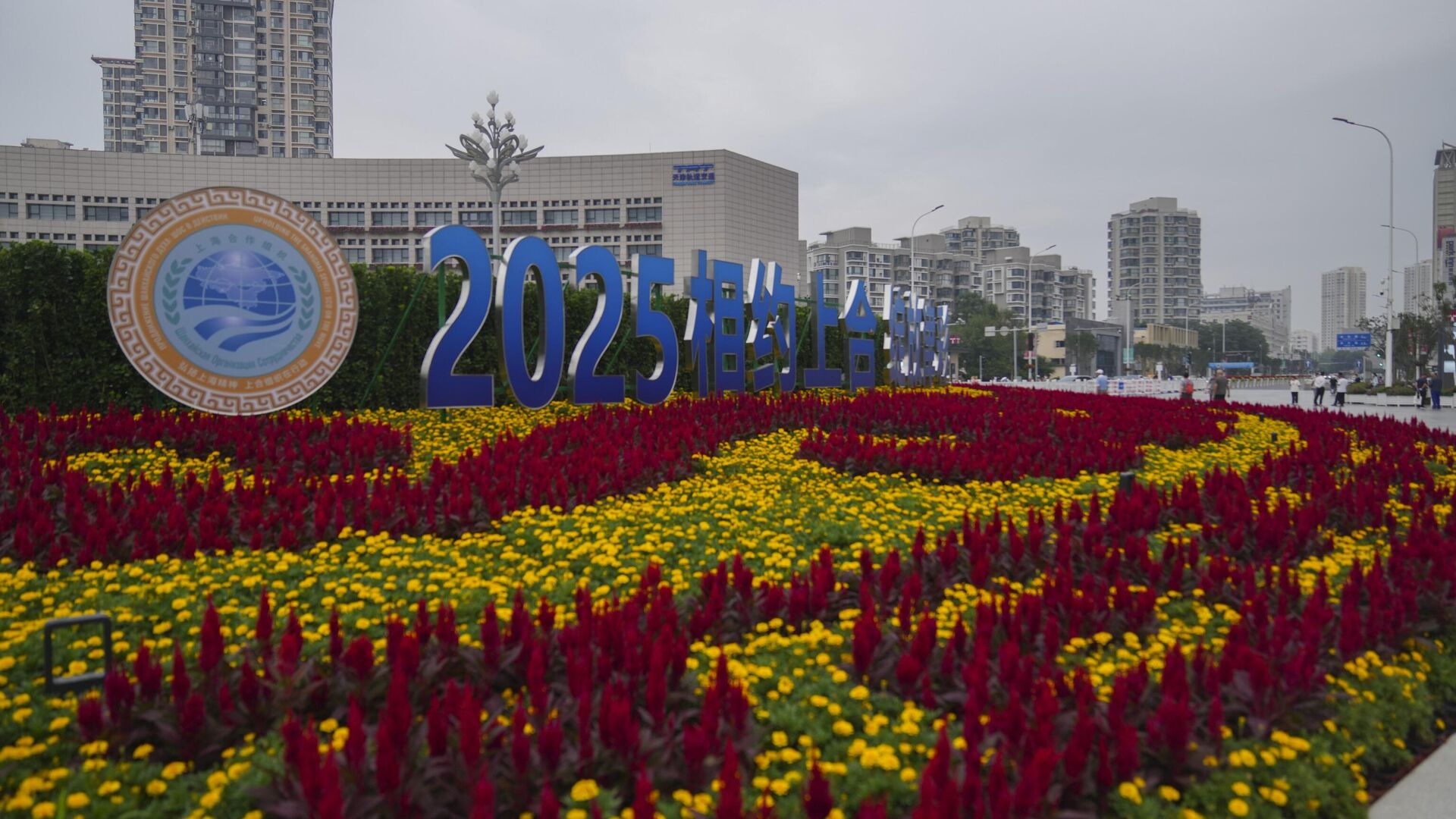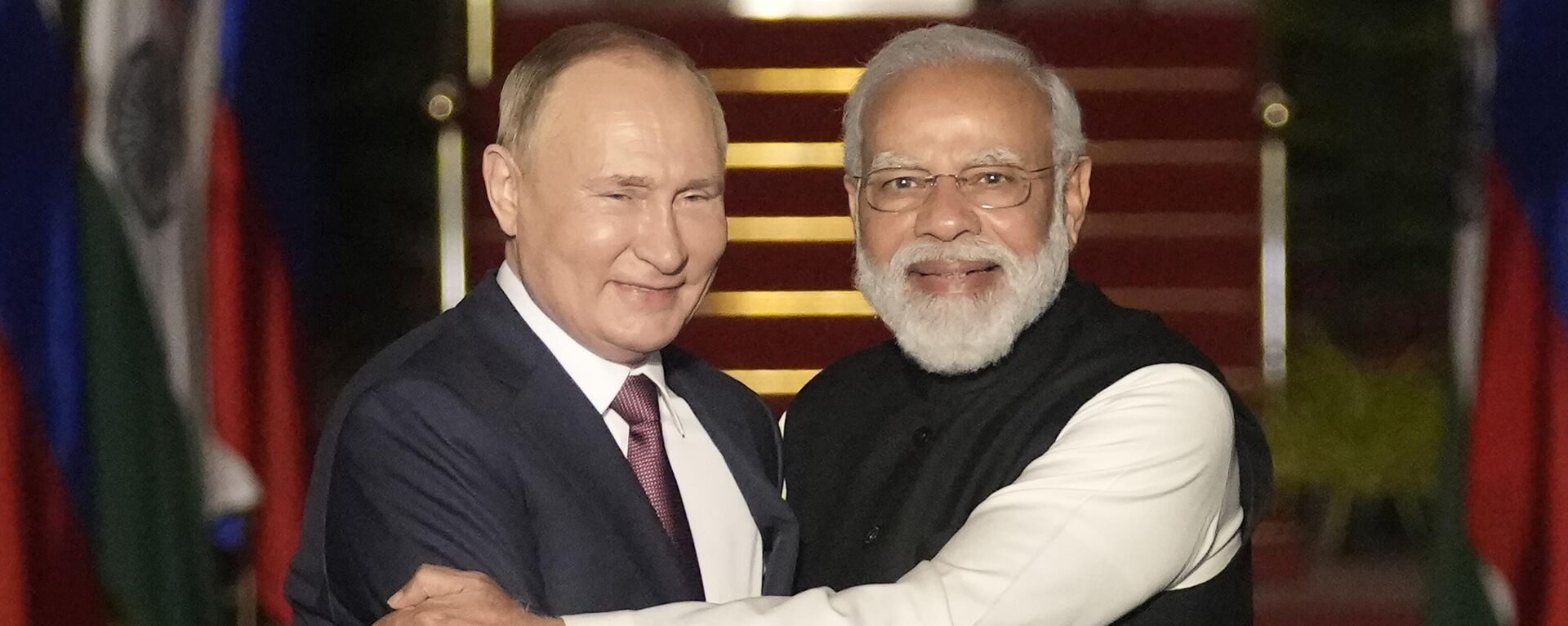https://sputniknews.in/20250830/sco-summit-in-tianjin-strategic-convergence-amid-global-turbulence-9683425.html
SCO Summit in Tianjin: Strategic Convergence Amid Global Turbulence
SCO Summit in Tianjin: Strategic Convergence Amid Global Turbulence
Sputnik India
The Shanghai Cooperation Organisation (SCO) summit will be held in Tianjin from 31 August to 1 September, bringing together over 20 heads of state and leaders... 30.08.2025, Sputnik India
2025-08-30T20:31+0530
2025-08-30T20:31+0530
2025-08-30T20:31+0530
vladimir putin
xi jinping
eurasia
beijing
china
shanghai cooperation organisation (sco)
the united nations (un)
india
https://cdn1.img.sputniknews.in/img/07e9/08/1d/9683253_0:160:3072:1888_1920x0_80_0_0_090fcfe369dd4f2ca87c20ed2be8d8e8.jpg
It will be the largest SCO summit ever, representing nearly half of the world’s population, a quarter of global landmass, and a major share of global GDP.Both Russian President Vladimir Putin and Indian Prime Minister Narendra Modi are expected to draw significant attention. Their visits, alongside Chinese President Xi Jinping’s role as host, are shaping this year’s summit into a high-stakes geopolitical gathering.Putin will stay in China from 31 August to 3 September, attending the SCO summit, joining WWII commemoration events in Beijing, and holding a series of bilateral meetings. Scheduled talks include meetings with Xi, Modi, Iranian President Masoud Pezeshkian, Serbian President Aleksandar Vučić, and Turkish leader Recep Tayyip Erdoğan.Modi’s visit is equally consequential, given that it is his first trip to China in years. Some experts see potential for a reset in India–China ties—with opportunities ranging from investments in renewables and semiconductors to easing tensions with Pakistan.Sudheendra Kulkarni, a former adviser to Indian PM Vajpayee, argues that Modi’s trip is not just about short-term manoeuvring or US pressure. “Good-neighbourliness between India and China is vital for Asia and the world.”Professor B. R. Deepak of JNU stresses that Modi’s participation signals India’s pursuit of strategic autonomy. Reduced border tensions, partial economic reopening, and renewed engagement with Xi and Putin could help stabilise supply chains and balance major powers.Meanwhile, the Kremlin has emphasised that Putin and Xi will hold both broad and narrow-format talks, including informal discussions “over tea.” Sensitive topics such as relations with the US and the Ukraine conflict are expected to dominate. Russia’s delegation includes three deputy PMs, over 10 ministers, and top state corporation executives.On the economic front, Russia is preparing to showcase deliverables. Rostec has announced readiness to supply China with PD-14, PD-8, and next-generation PD-35 aircraft engines. The move could help Beijing’s C919 passenger jet programme, which faces hurdles after Washington restricted access to US technologies.The Modi–Putin meeting at the SCO is also expected to touch on Russian oil purchases and US tariffs. Indian analysts insist New Delhi will not abandon Russian oil under Western pressure, underscoring India’s independent stance.Beyond individual deals, the summit highlights a wider trend: major Eurasian players asserting autonomy from Western influence. By engaging simultaneously with Xi and Putin, Modi signals India’s balancing act. For Russia and China, the summit offers a stage to deepen coordination in the face of Western sanctions and trade wars.Whether through revived trilaterals, energy deals, or industrial cooperation, the SCO summit is emerging as a key venue in the global shift of power eastwards.
https://sputniknews.in/20250829/putin-to-visit-india-in-december---kremlin-aide-9682157.html
eurasia
beijing
china
india
Sputnik India
feedback.hindi@sputniknews.com
+74956456601
MIA „Rossiya Segodnya“
2025
Sputnik India
feedback.hindi@sputniknews.com
+74956456601
MIA „Rossiya Segodnya“
News
en_IN
Sputnik India
feedback.hindi@sputniknews.com
+74956456601
MIA „Rossiya Segodnya“
Sputnik India
feedback.hindi@sputniknews.com
+74956456601
MIA „Rossiya Segodnya“
vladimir putin, xi jinping, eurasia, beijing, china, shanghai cooperation organisation (sco), the united nations (un), india
vladimir putin, xi jinping, eurasia, beijing, china, shanghai cooperation organisation (sco), the united nations (un), india
SCO Summit in Tianjin: Strategic Convergence Amid Global Turbulence
The Shanghai Cooperation Organisation (SCO) summit will be held in Tianjin from 31 August to 1 September, bringing together over 20 heads of state and leaders of 10 major international organisations.
It will be the largest SCO summit ever, representing nearly half of the world’s population, a quarter of global landmass, and a major share of global GDP.
Both Russian President Vladimir Putin and Indian Prime Minister Narendra Modi are expected to draw significant attention. Their visits, alongside Chinese President Xi Jinping’s role as host, are shaping this year’s summit into a high-stakes geopolitical gathering.
Putin will stay in China from 31 August to 3 September, attending the SCO summit, joining WWII commemoration events in Beijing, and holding a series of bilateral meetings. Scheduled talks include meetings with Xi, Modi, Iranian President Masoud Pezeshkian, Serbian President Aleksandar Vučić, and Turkish leader Recep Tayyip Erdoğan.
Modi’s visit is equally consequential, given that it is his
first trip to China in years. Some experts see potential for a reset in India–China ties—with opportunities ranging from investments in renewables and semiconductors to easing tensions with Pakistan.
Sudheendra Kulkarni, a former adviser to Indian PM Vajpayee, argues that Modi’s trip is not just about short-term manoeuvring or US pressure. “Good-neighbourliness between India and China is vital for Asia and the world.”
Professor B. R. Deepak of JNU stresses that Modi’s participation signals India’s pursuit of strategic autonomy. Reduced border tensions, partial economic reopening, and renewed engagement with Xi and Putin could help stabilise supply chains and balance major powers.
Meanwhile, the Kremlin has emphasised that Putin and Xi will hold both broad and narrow-format talks, including informal discussions “over tea.” Sensitive topics such as relations with the US and the Ukraine conflict are expected to dominate. Russia’s delegation includes three deputy PMs, over 10 ministers, and top state corporation executives.
On the economic front, Russia is preparing to showcase deliverables. Rostec has announced readiness to supply China with PD-14, PD-8, and next-generation PD-35 aircraft engines. The move could help Beijing’s C919 passenger jet programme, which faces hurdles after Washington restricted access to US technologies.
The Modi–Putin meeting at the SCO is also expected to touch on Russian oil purchases and US tariffs. Indian analysts insist New Delhi will not abandon Russian oil under Western pressure, underscoring India’s independent stance.
Beyond individual deals, the summit highlights a wider trend: major Eurasian players asserting autonomy from Western influence. By engaging simultaneously with Xi and Putin, Modi signals India’s balancing act. For Russia and China, the summit offers a stage to deepen coordination in the face of Western sanctions and trade wars.
Whether through revived trilaterals, energy deals, or industrial cooperation, the SCO summit is emerging as a key venue in the global shift of power eastwards.


